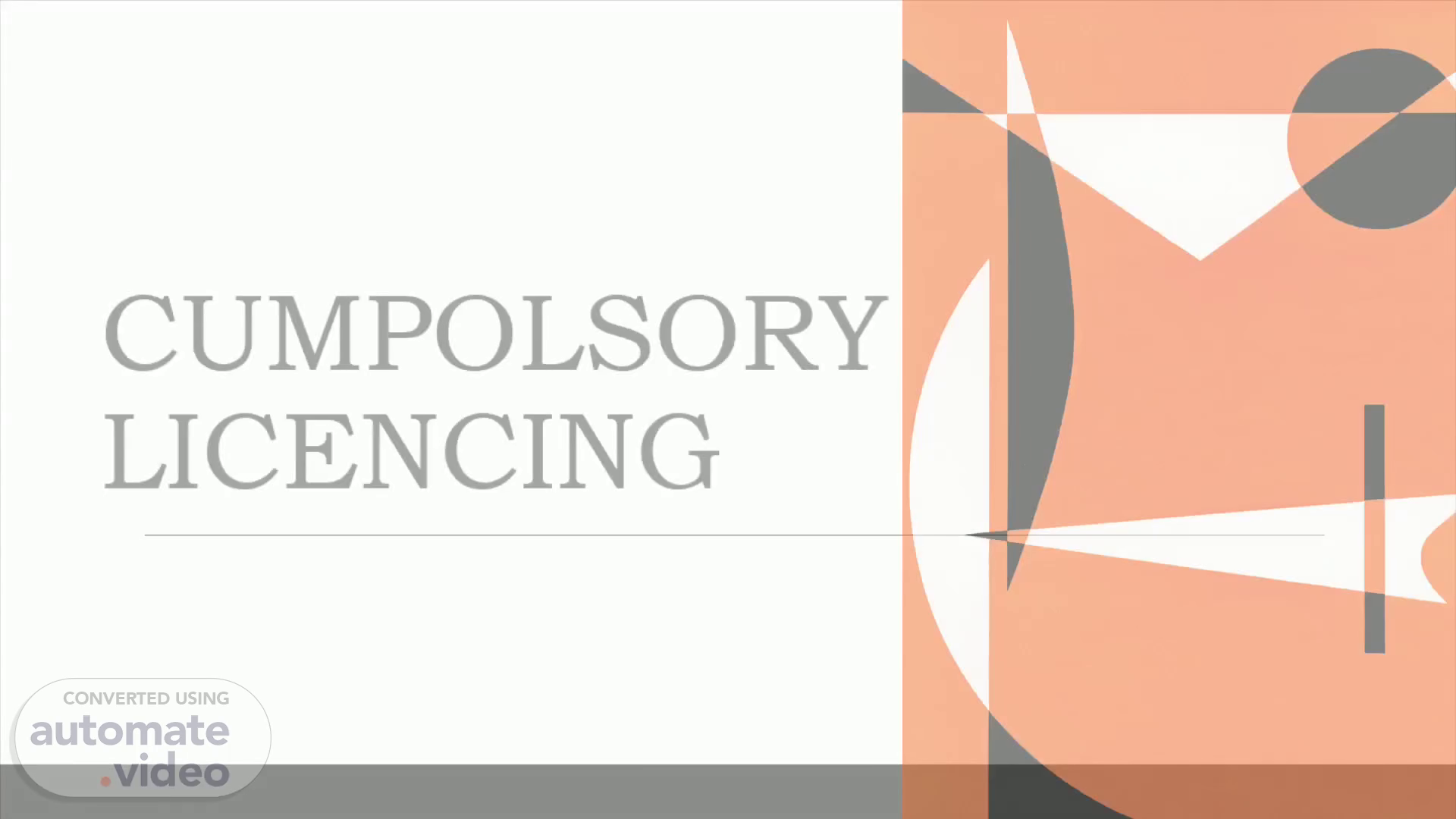
Page 1 (0s)
[Audio] Welcome everyone! Today, we will delve into the different facets of compulsory licensing in India and analyze the consequences of the Natco Pharma vs. Bayer Corporation case, resulting in a compulsory license being awarded to Natco. Let's begin!.
Page 2 (18s)
[Audio] Compulsory licensing is a legal system that permits governments to grant licenses to third parties to utilize, manufacture or market a patented invention without the authorization of the patent holder. It is intended to secure public interests by making sure that vital products and services stay available, and also that their prices stay within the reach of the general public. This type of licensing is mostly utilized to tackle certain social problems, such as public health, access to vital medicines and stimulating competition in certain industries. Compulsory licensing is a powerful means for governments to make sure that patented products stay available and cost-effective for everyone..
Page 3 (1m 2s)
[Audio] Under the Patent Act of 2005, section 84(1) offers an effective approach to address the problem of patents becoming too expensive. By filing an application for a compulsory license on a patent that has been granted for three years, any person is able to receive a license. This license may be issued if the patent is not available to the public at an affordable price, it is not meeting the public's needs, or it is not available in the Indian territory..
Page 4 (1m 34s)
[Audio] In 1999, Bayer Corporation obtained a US patent for the drug Sorafenib Tosylate and subsequently launched it internationally in 2005. In 2010, Indian generic drug manufacturer Cipla started selling a generic version of the drug at a much lower price, prompting Bayer to sue Cipla in 2011. In response, Natco Pharma Limited applied for a compulsory license for the same drug in 2012, which was granted by the Controller General of Patents Designs and Trademarks. This case shows how a company can still gain access to a patented product even if it is not available for commercial purchase..
Page 5 (2m 16s)
[Audio] I'd like to talk about the Compulsory Licensing of a drug called Nexavar. The Indian Controller General of Patents, Designs and Trade Marks granted Natco a compulsory license on the grounds that the drug was too expensive for India's population. Bayer, the originator of the drug, appealed the decision to the Intellectual Property Appellate Board, but their request for a stay of the Controller's order was denied. The IPAB ultimately upheld the grant of the compulsory license to Natco with some modifications. The IPAB's decision was influenced by Article 21 of the Indian Constitution, which pertains to the right to life. Bayer then attempted to appeal the IPAB's decision to the Bombay High Court, but their petition was denied. The decision was finally upheld by the Indian Supreme Court who reaffirmed the grant of the compulsory license of Nexavar to Natco. Thank you for your attention..